Strictly Personal
We lynch chicken thieves as elite buccaneers clean the state coffers by Jenerali Ulimwengu
Published
2 years agoon
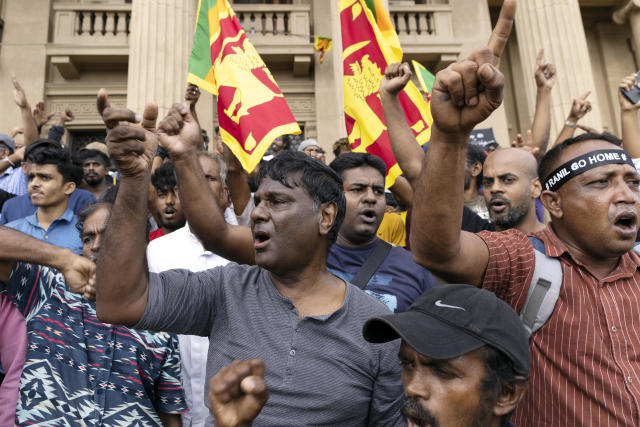
Someone, please explain this conundrum to me: Why do our people in villages and towns stone and set on fire chicken thieves but never raise a finger against the big thieves in government?
I have asked myself this question forever but in the light of events in Sri Lanka, it came back to me with renewed poignancy. The sight of jubilant crowds plunging into the president’s swimming pool, lounging in the president’s master bed and forcing him to flee the country came to me as something that many Africans would desire but which is hardly possible on our continent.
The anger expressed by the Sri Lankans against their rulers stems from a number of factors, including corruption in high places, failed economic policies and deepening poverty among the ordinary people.
Are these not the same ills that Africans have been complaining about for the past six decades or so of our existence as “independent nations”? So, why do we react differently from our counterparts elsewhere?
The answer to this question, and many more that could arise from it, lies in a number of places, which I have been mulling.
One, we react in different ways when we catch a chicken thief than when we are told that an official has stolen from the government. The chicken is stolen from someone we know, John, Aisha, or Masalakulangwa, a real person we know. So the theft is “real,” causing someone to miss a future meal, while theft from the government by a government official is far removed from us — unreal and theoretical.
This second type of theft does not touch our senses the same way the first one does. It would take a lot of explaining to make large enough numbers of people understand that the government officials are stealing our collective chickens in their hundreds of millions and that their thefts are depriving us and our children’s children of hundreds of thousands of meals in terms of real food, shelter, clothing, education, health, water, roads, trains, sports, etc.
The strategic damage caused by people in government stealing from us is hidden from the masses, and these latter will be forever blind to that reality because even the people they send to representative councils – such as parliament — to serve as their eyes and ears, are in cahoots with the thieves in government.
These are realities that remain beyond the comprehension of the majority of our people, who are dizzied by the combined effect of poverty, helplessness and cluelessness to the point that they “take it out” on the poor chicken thief, who is really their comrade, only they do not know.
But what should they know? That, like what happened in Sri Lanka, it is their government that is causing the hunger and the poverty?
For that to happen, the people need to access information about that causality, that link between their deplorable conditions and the action (or lack of it) by the government.
For that to happen — for the people to really know — they must possess media that freely informs and educates them on the nefarious forces operating against them. But in situations where press and media have been brought under the thumb of the government censor, this information is out of the question, and thus official corruption feeds on enforced opacity, and lack of transparency.
In the rarest cases, where this enforced opacity is breached by unrelenting and spirited activism involving members of an unflappable civil society, the people usually respond, and start asking questions of their rulers. This latter, not used to being questioned by those they rule over, unleash official violence against their people, wounding and killing indiscriminately, until the people give up the fight and go back to their villages and towns, looking for the next chicken thief to lynch. Until the next time.
Look around the African countries where the people have risen against their unpopular regimes and the military have been called out to quell the unrest. You realise that the rulers — for the most part so-called civilian — have refused to listen to the demands of their people, and the falcon cannot hear the falconer. Soon, the military will take over, and the African Union will say that military takeovers are unconstitutional!
To which my response is, “Fiddlesticks!” The military took over a long time ago, ever since the “civilian” governments failed to hear the voices of their people and turned guns on them. To condemn all military takeovers as undemocratic is tantamount to saying that all “civilian” governments are democratic, which is a no-brainer. I have seen so many of them, in Pierre Cardin suits, but they don’t fool me.
The same charges of corruption and “state capture” that were levelled against South Africa’s Jacob Zuma are being levelled against other African rulers in that neighbourhood and beyond. This speaks to the perennial issues afflicting us hinging on a certain inability to govern ourselves. The African governments rule over their countries as though they were foreign powers come to exploit and export back to the metropole.
You may like
-


Air Peace, capitalism and national interest, By Dakuku Peterside
-


This is chaos, not governance, and we must stop it, By Tee Ngugi
-


Off we go again with public shows, humbug and clowning, By Jenerali Uliwengu
-


How patriarchy underpins gender violence today, By Tee Ngugi
-


Help! There’s a dangerous, secret plot to save the EAC from imminent death, By Charles Onyango-Obbo
-
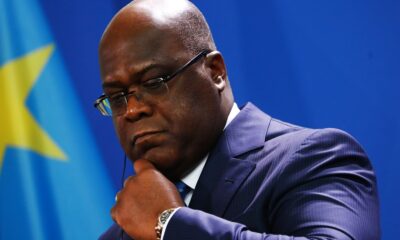

How South Africa, US elections could shape Tshisekedi’s bread in Kinshasa, By Charles Onyango-Obbo
Strictly Personal
Air Peace, capitalism and national interest, By Dakuku Peterside
Published
1 week agoon
April 16, 2024
Nigerian corporate influence and that of the West continue to collide. The rationale is straightforward: whereas corporate activity in Europe and America is part of their larger local and foreign policy engagement, privately owned enterprises in Nigeria or commercial interests are not part of Nigeria’s foreign policy ecosystem, neither is there a strong culture of government support for privately owned enterprises’ expansion locally and internationally.
The relationship between Nigerian businesses and foreign policy is important to the national interest. When backing domestic Nigerian companies to compete on a worldwide scale, the government should see it as a lever to drive foreign policy, and national strategic interest, promote trade, enhance national security considerations, and minimize distortion in the domestic market as the foreign airlines were doing, boost GDP, create employment opportunities, and optimize corporate returns for the firms.
Admitted nations do not always interfere directly in their companies’ business and commercial dealings, and there are always exceptions. I can cite two areas of exception: military sales by companies because of their strategic implications and are, therefore, part of foreign and diplomatic policy and processes. The second is where the products or routes of a company have implications for foreign policy. Air Peace falls into the second category in the Lagos – London route.
Two events demonstrate an emerging trend that, if not checked, will disincentivize Nigerian firms from competing in the global marketplace. There are other notable examples, but I am using these two examples because they are very recent and ongoing, and they are typological representations of the need for Nigerian government backing and support for local companies that are playing in a very competitive international market dominated by big foreign companies whose governments are using all forms of foreign policies and diplomacy to support and sustain.
The first is Air Peace. It is the only Nigerian-owned aviation company playing globally and checkmating the dominance of foreign airlines. The most recent advance is the commencement of flights on the Lagos – London route. In Nigeria, foreign airlines are well-established and accustomed to a lack of rivalry, yet a free-market economy depends on the existence of competition. Nigeria has significantly larger airline profits per passenger than other comparable African nations. Insufficient competition has resulted in high ticket costs and poor service quality. It is precisely this jinx that Air Peace is attempting to break.
On March 30, 2024, Air Peace reciprocated the lopsided Bilateral Air Service Agreement, BASA, between Nigeria and the United Kingdom when the local airline began direct flight operations from Lagos to Gatwick Airport in London. This elicited several reactions from foreign airlines backed by their various sovereigns because of their strategic interest. A critical response is the commencement of a price war. Before the Air Peace entry, the price of international flight tickets on the Lagos-London route had soared to as much as N3.5 million for the economy ticket. However, after Air Peace introduced a return economy class ticket priced at N1.2 million, foreign carriers like British Airways, Virgin Atlantic, and Qatar Airways reduced their fares significantly to remain competitive.
In a price war, there is little the government can do. In an open-market competitive situation such as this, our government must not act in a manner that suggests it is antagonistic to foreign players and competitors. There must be an appearance of a level playing field. However, government owes Air Peace protection against foreign competitors backed by their home governments. This is in the overall interest of the Nigerian consumer of goods and services. Competition history in the airspace works where the Consumer Protection Authority in the host country is active. This is almost absent in Nigeria and it is a reason why foreign airlines have been arbitrary in pricing their tickets. Nigerian consumers are often at the mercy of these foreign firms who lack any vista of patriotism and are more inclined to protect the national interest of their governments and countries.
It would not be too much to expect Nigerian companies playing globally to benefit from the protection of the Nigerian government to limit influence peddling by foreign-owned companies. The success of Air Peace should enable a more competitive and sustainable market, allowing domestic players to grow their network and propel Nigeria to the forefront of international aviation.
The second is Proforce, a Nigerian-owned military hardware manufacturing firm active in Rwanda, Chad, Mali, Ghana, Niger, Burkina Faso, and South Sudan. Despite the growing capacity of Proforce in military hardware manufacturing, Nigeria entered two lopsided arrangements with two UAE firms to supply military equipment worth billions of dollars , respectively. Both deals are backed by the UAE government but executed by UAE firms.
These deals on a more extensive web are not unconnected with UAE’s national strategic interest. In pursuit of its strategic national interest, India is pushing Indian firms to supply military equipment to Nigeria. The Nigerian defence equipment market has seen weaker indigenous competitors driven out due to the combination of local manufacturers’ lack of competitive capacity and government patronage of Asian, European, and US firms in the defence equipment manufacturing sector. This is a misnomer and needs to be corrected.
Not only should our government be the primary customer of this firm if its products meet international standards, but it should also support and protect it from the harsh competitive realities of a challenging but strategic market directly linked to our national military procurement ecosystem. The ability to produce military hardware locally is significant to our defence strategy.
This firm and similar companies playing in this strategic defence area must be considered strategic and have a considerable place in Nigeria’s foreign policy calculations. Protecting Nigeria’s interests is the primary reason for our engagement in global diplomacy. The government must deliberately balance national interest with capacity and competence in military hardware purchases. It will not be too much to ask these foreign firms to partner with local companies so we can embed the technology transfer advantages.
Our government must create an environment that enables our local companies to compete globally and ply their trades in various countries. It should be part of the government’s overall economic, strategic growth agenda to identify areas or sectors in which Nigerian companies have a competitive advantage, especially in the sub-region and across Africa and support the companies in these sectors to advance and grow to dominate in the African region with a view to competing globally. Government support in the form of incentives such as competitive grants ,tax credit for consumers ,low-interest capital, patronage, G2G business, operational support, and diplomatic lobbying, amongst others, will alter the competitive landscape. Governments and key government agencies in the west retain the services of lobbying firms in pursuit of its strategic interest.
Nigerian firms’ competitiveness on a global scale can only be enhanced by the support of the Nigerian government. Foreign policy interests should be a key driver of Nigerian trade agreements. How does the Nigerian government support private companies to grow and compete globally? Is it intentionally mapping out growth areas and creating opportunities for Nigerian firms to maximize their potential? Is the government at the domestic level removing bottlenecks and impediments to private company growth, allowing a level playing field for these companies to compete with international companies?
Why is the government patronising foreign firms against local firms if their products are of similar value? Why are Nigerian consumers left to the hands of international companies in some sectors without the government actively supporting the growth of local firms to compete in those sectors? These questions merit honest answers. Nigerian national interest must be the driving factor for our foreign policies, which must cover the private sector, just as is the case with most developed countries. The new global capitalism is not a product of accident or chance; the government has choreographed and shaped it by using foreign policies to support and protect local firms competing globally. Nigeria must learn to do the same to build a strong economy with more jobs.
Strictly Personal
This is chaos, not governance, and we must stop it, By Tee Ngugi
Published
2 weeks agoon
April 10, 2024
The following are stories that have dominated mainstream media in recent times. Fake fertiliser and attempts by powerful politicians to kill the story. A nation of bribes, government ministries and corporations where the vice is so routine that it has the semblance of policy. Irregular spending of billions in Nairobi County.
Billions are spent in all countries on domestic and foreign travel. Grabbing of land belonging to state corporations, was a scam reminiscent of the Kanu era when even public toilets would be grabbed. Crisis in the health and education sectors.
Tribalism in hiring for state jobs. Return of construction in riparian lands and natural waterways. Relocation of major businesses because of high cost of power and heavy taxation. A tax regime that is so punitive, it squeezes life out of small businesses. Etc, ad nauseam.
To be fair, these stories of thievery, mismanagement, negligence, incompetence and greed have been present in all administrations since independence.
However, instead of the cynically-named “mama mboga” government reversing this gradual slide towards state failure, it is fuelling it.
Alternately, it’s campaigning for 2027 or gallivanting all over the world, evoking the legend of Emperor Nero playing the violin as Rome burned.
A government is run based on strict adherence to policies and laws. It appoints the most competent personnel, irrespective of tribe, to run efficient departments which have clear-cut goals.
It aligns education to its national vision. Its strategies to achieve food security should be driven by the best brains and guided by innovative policies. It enacts policies that attract investment and incentivize building of businesses. It treats any kind of thievery or negligence as sabotage.
Government is not a political party. Government officials should have nothing to do with political party matters. They should be so engaged in their government duties that they literally would not have time for party issues. Government jobs should not be used to reward girlfriends and cronies.
Government is exhausting work undertaken because of a passion to transform lives, not for the trappings of power. Government is not endless campaigning to win the next election. To his credit, Mwai Kibaki left party matters alone until he had to run for re-election.
We have corrupted the meaning of government. We have parliamentarians beholden to their tribes, not to ideas.
We have incompetent and corrupt judges. We have a civil service where you bribe to be served. Police take bribes to allow death traps on our roads. We have urban planners who plan nothing except how to line their pockets. We have regulatory agencies that regulate nothing, including the intake of their fat stomachs.
We have advisers who advise on which tenders should go to whom. There is no central organising ethos at the heart of government. There is no sense of national purpose. We have flurries of national activities, policies, legislation, appointments which don’t lead to meaningful growth. We just run on the same spot.
Tee Ngugi is a Nairobi-based political commentator
EDITOR’S PICK


Nigeria’s NGX Group enters into strategic investment partnership with Ethiopian Securities Exchange
Leading Nigerian integrated market infrastructure group in Africa, the Nigerian Exchange Group (NGX), has announced strategic investment in the Ethiopian...


Namibia govt condemns tourists posing naked on Big Daddy Dune
The Namibian authorities have frowned at tourists who posed naked at the Big Daddy Dune, the country’s top tourist attraction...
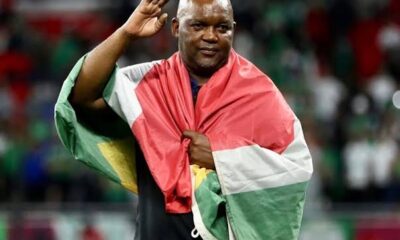

Domestic worker sues Pitso Mosimane, wife following debilitating injuries
Former Mamelodi Sundowns of South Africa and Al Ahli of Egypt coach, Pitso Mosimane, and his wife, Moira Tlhagale, have...


Media polarisation blamed for biased coverage, civil society leader calls for mindset shift
Chama Mwansa, Executive Director of the Chandarika Women and Youths Foundation, has attributed media biases to the similarities in coverage...


Nigeria: 118 prison inmates escape after rainstorm destroys facility
At least 118 inmates of the Medium Security Custodial Centre in Suleja, Niger State, in northern Nigeria, have reportedly escaped...


Tanzania’s auto-tech startup Spana is simplifying car maintenance— CEO
Tanzania’s auto-tech startup, Spana, has developed a mobile application for a bouquet of automobile services, enabling individual car owners and...


Nollywood thrown into mourning as another veteran actor Zulu Adigwe passes on
The Nigerian movie industry, popularly known as Nollywood, has once again been thrown into mourning with the death of veteran...


Zambian FA boss, Gen.Sec arrested over alleged laundering of K341,902
President of the Football Association of Zambia (FAZ), Andrew Kamanga, has been arrested along with the Secretary-General and two other...
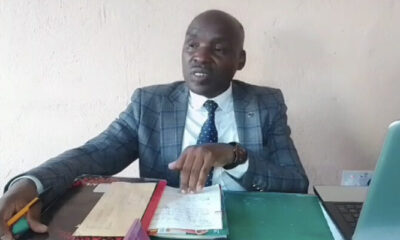

Luapula businessman, Munsanje, reflects on media freedoms and freedom of expression
As stakeholder engagement intensifies regarding the ongoing project to amplify voices on media freedom, freedom of expression, and digital rights,...
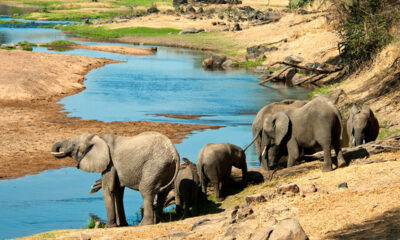

World Bank stops tourism fund to Tanzania’s Ruaha park. Here’s why
A spokesperson for the World Bank said on Wednesday that the lender had stopped all new payments from a $150...
Trending
-
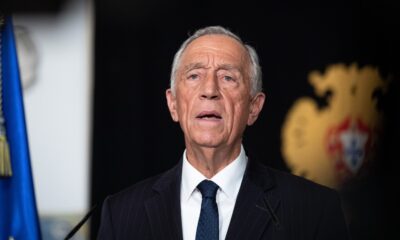
 Musings From Abroad2 days ago
Musings From Abroad2 days agoPresident de Sousa insists Portugal must ‘pay costs’ of slavery, colonial crimes
-

 Tech1 day ago
Tech1 day agoTanzania’s auto-tech startup Spana is simplifying car maintenance— CEO
-

 Culture1 day ago
Culture1 day agoNollywood thrown into mourning as another veteran actor Zulu Adigwe passes on
-

 Politics2 days ago
Politics2 days agoDigital Rights: Policy enthusiast, Jere, advocates self-regulation as alternative to govt regulations


